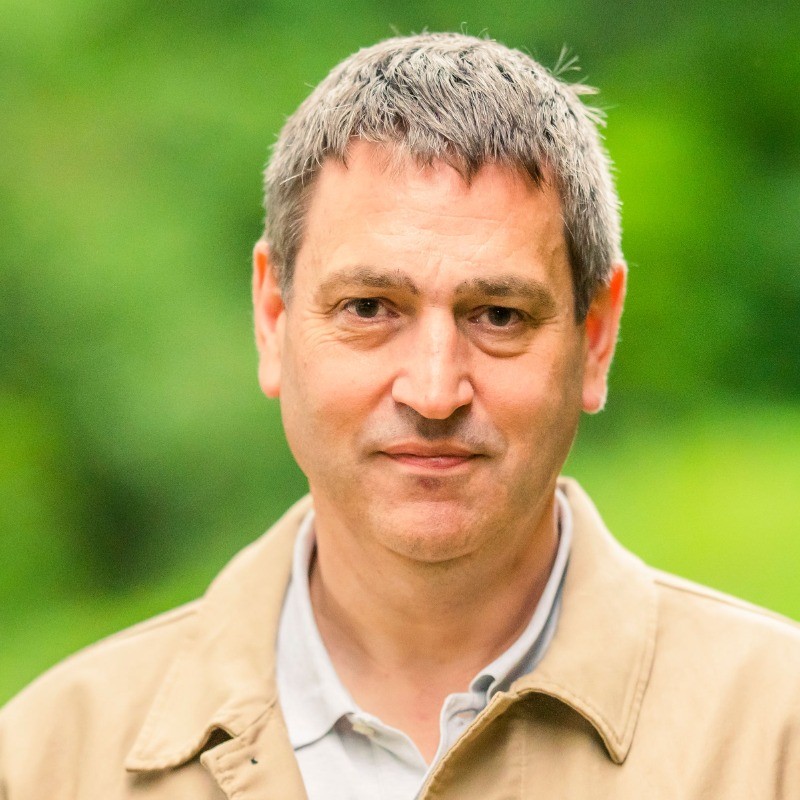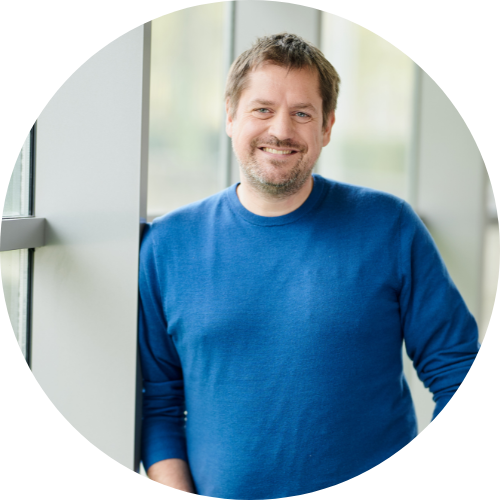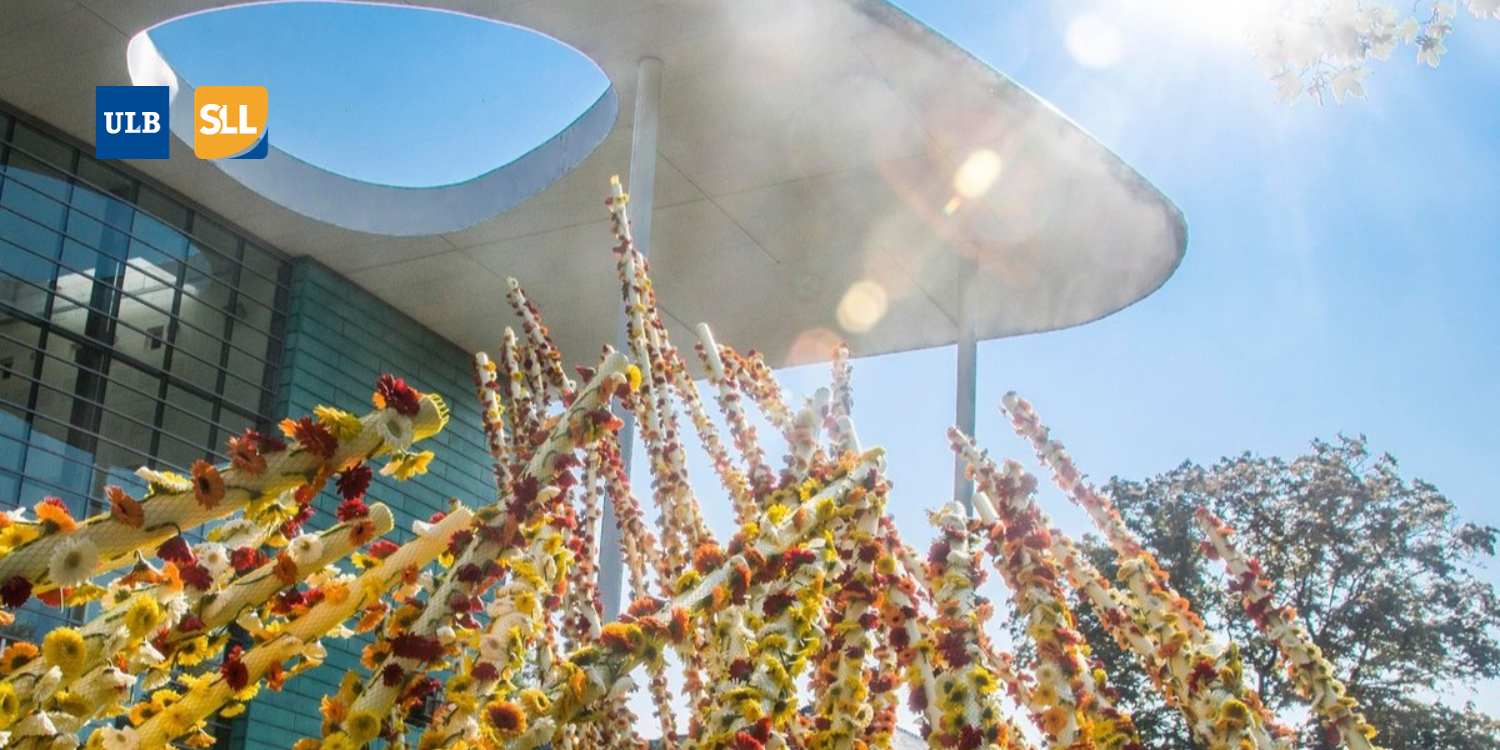Apprenez-en davantage sur Solvay Lifelong Learning.
Sustainability Fundamentals
Le programme ne sera pas proposé cette année, car nous travaillons sur une refonte complète. Contactez notre équipe des admissions (oep.admissionoffice@solvay.edu) pour explorer d'autres opportunités et commencer votre parcours en sustainabilité ou abonnez-vous ci-dessous pour recevoir des mises à jour.
Location
Duration
Frequency
Language
Tuition
Application deadline
Programme start:
Meilleure école de gestion belge francophone

Pour qui ?
A qui s'adresse cette formation ?
Profil
Cette formation est spécialement conçue pour les professionnels souhaitant obtenir les bases des pratiques durables pour devenir des acteurs du changement au sein de leur organisation.
• Vous occupez un poste de consultant, de manager de niveau junior à senior. Vous souhaitez mettre en place des pratiques durables au sein de votre organisation et actualiser vos connaissances scientifiques et commerciales afin de rester pertinent et compétitif dans un environnement en constante évolution.
• Vous venez de terminer vos études et vous souhaitez approfondir vos connaissances en matière de durabilité avant de vous lancer dans le monde professionnel.
La formation Sustainability Fundamentals vous aide à découvrir et à réfléchir aux concepts clés de la durabilité et à leur application au sein de votre entreprise.
Prérequis à la formation
- Cette formation s'adresse aux professionnels juniors, intermédiaires et seniors ;
- Maîtrise de l'anglais.
Des défis environnementaux, sociaux et financiers actuels liés à la durabilité, basés sur les dernières données disponibles.
La formation a pour objectif d'enrichir votre perspective en matière de développement durable. Elle vous dote des connaissances et des outils essentiels pour appréhender globalement votre entreprise. Vous serez en mesure d'évaluer l'incidence que vous exercez sur vos parties prenantes.
Vous serez amené à examiner votre rôle en tant que leader et votre capacité à exercer une influence dans le processus de changement. Vous aurez l'opportunité d'explorer la situation spécifique de votre d'entreprise et d'identifier des pistes favorisant la durabilité.
Grâce à une vision à 360° de la durabilité et de ses implications sur l'ensemble des fonctions clés de l'entreprise.
Adoptez une perspective innovante envers le développement des affaires, vous ouvrant ainsi de nouvelles opportunités prospères dans un futur résolument durable.
Cette formation offre une occasion unique d'échanger avec des experts en durabilité, mais aussi de partager des expériences et de nouer des contacts avec d'autres acteurs du secteur.
Bienvenue dans l'anthropocène
L'état de la planète, les dynamiques majeures des écosystèmes et le rôle de la biodiversité.
Comprendre le contexte global de la durabilité.
- Responsable de module : Bertrand Collignon
- Date : mardi 11 mars 2025
Systèmes socio-écologiques
L'entrelacement des activités humaines et des systèmes naturels : exemples des secteurs de l'énergie et de l'alimentation.
Un aperçu global des activités humaines les plus impactantes.
- Responsable de module : Bertrand Collignon
- Date : jeudi 13 mars 2025
Climat : de la science à l'action
Comprendre les causes et les conséquences du changement climatique et comment vous pouvez contribuer à la solution.
Maîtriser le changement climatique et quantifier vos impacts.
- Responsables de module : Bertrand Collignon et Arthur Sanchez
- Date : mardi 18 mars 2025
La tragédie des biens communs : sommes-nous condamnés ?
Participez à un jeu de simulation qui mettra en lumière les moteurs de l’insoutenabilité.
Une approche systémique pour un avenir durable.
- Responsables de module : Bertrand Collignon et Arthur Sanchez
- Date : jeudi 20 mars 2025
Diriger pour le changement
Accélérer la transformation et mobiliser vos parties prenantes.
Développer un état d’esprit de leadership.
- Responsable de module : Franck Mathues
- Date : mardi 25 mars 2025
Politiques et gouvernance
Donner aux entreprises et organisations les bons outils de gouvernance.
Les principaux cadres de la durabilité et leurs implications.
- Responsable de module : Arthur Sanchez
- Date : mardi 27 mars 2025
Diversité, équité et inclusion
Comprendre pourquoi la DEI est importante et son rôle dans les organisations.
Aller au-delà de l'argument commercial pour la DEI.
- Responsable de module : Joelle Jablan
- Date : jeudi 1er avril 2025
Transformation des entreprises
Transformation des entreprises, points de levier et économie circulaire.
Préparez-vous à prendre des mesures qui auront un impact.
- Responsable de module : Bertrand Collignon
- Date : jeudi 3 avril 2025
Vos intervenants
Des praticiens chevronnés, passionnés par leur métier.
Plus de cordes à votre arc
- Une formation de pointe : une occasion d'apprendre et de partager avec des experts et des professionnels engagés pour la durabilité.
- En travaillant en collaboration avec des experts et des professionnels de divers horizons, cette formation vous offre l'opportunité d'acquérir une perspective multidimensionnelle. Dirigé par une équipe interdisciplinaire de scientifiques, d'économistes et de gestionnaires d'entreprise, cette formation repose sur la synergie des compétences complémentaires au cœur de la durabilité : les sciences environnementales, l'impact social, la stratégie de gouvernance et la gestion d'entreprise.
Les avantages de la formation
Apprentissage dynamique
Cette formation repose sur une approche interactive et une méthodologie d'apprentissage pratique. Elle vise à développer les compétences clés et l'état d'esprit propice pour faire face à la transition du monde des affaires vers des modèles commerciaux durables. En parallèle, il favorise les interactions et les échanges entre des participants aux origines et fonctions variées, issus de divers secteurs.
Certification Carbon Literate
Les participants auront l'opportunité d'obtenir une certification officielle en tant que "Carbon Literate" par le Carbon Literacy Project, une organisation d'accréditation internationalement reconnue basée au Royaume-Uni.
Faites partie d’un réseau exceptionnel de plus de 35 000 alumni pour ne jamais cesser d’apprendre et d’évoluer. Le réseau Solvay Schools Alumni est l’un des plus grands réseaux d’affaires en Belgique, avec des membres présents à travers le monde. Chaque année, près de 50 événements sont organisés, offrant des opportunités de formation continue, de développement de carrière et de networking.

Didier Bernardi
Conseillé en matière de développement de la clientèle et de mise sur le marché
Sustainable Business Catalyst

Olivia Dejonghe
Consultante Associée
BAIN & Company
"La formation a été essentielle pour notre bureau afin de créer une compréhension commune de la durabilité et de nous aider à intégrer la durabilité dans tous nos travaux. Même si j'ai une formation en sciences de l'environnement, ce cours a été très instructif. Non seulement il a permis de rafraîchir certains des principes de base du changement climatique, de la biodiversité, etc., mais il a également fourni des perspectives très pertinentes sur la gouvernance ESG publique et privée grâce à des sessions spécifiques, des études de cas et des conférenciers invités. Très instructif !"

Olivier Gillerot
Partenaire
BAIN & Company
"Aujourd'hui, le développement durable figure en tête des préoccupations de l'ensemble de notre clientèle. Cependant, nombre de personnes ne disposent pas des connaissances de base nécessaires pour engager des discussions significatives et percutantes sur le sujet. La formation Sustainability Fundamentals comble cette lacune en fournissant non seulement ces bases, mais également en offrant un cadre robuste pour la réflexion et l'action systémique face aux enjeux ESG. En associant une solide base académique à un partage d'expérience orienté vers l'action, le cours offre également un accès privilégié à une riche gamme de données, de littérature et d'analyses sur le sujet. Il représente ainsi un niveau minimum essentiel pour tous ceux qui se préoccupent des défis sociétaux de notre monde. Et qui ne le serait pas ?"
"Face à l'état actuel de notre planète mais aussi de nos systèmes socio-économiques, nous devons repenser le fonctionnement de notre société à tous les niveaux. La durabilité répond aux défis face auxquels nous avons tous un rôle à jouer en tant que citoyens, régulateurs, et bien sûr entreprises. Dans ce contexte, notre formation "Sustainability Fundamentals" vous donnera une base solide pour vous lancer".

Bertrand Collignon
Directeur adjoint de l'Initiative pour le développement durable, membre du Conseil d'administration de WWF Belgique & Directeur académique
Aides financières
TARIFS PRÉFÉRENTIELS
- Early bird : Les candidatures soumises avant la fin de la date du Early Bird bénéficieront d'une réduction sur les frais d’inscription.
- Les alumni de Solvay Brussels School, Solvay Lifelong Learning, Université libre de Bruxelles et Vrije Universiteit Brussel bénéficient d’une réduction de 10% sur les frais d’inscription.
- Ruling : Vos frais de scolarité peuvent être considérés par l’administration belge comme des frais professionnels et, par conséquent, être éligibles à une déduction à l’IPP et à l’ISOC. Cette économie fiscale peut représenter jusqu’à 25 % des frais de scolarité. Pour plus d’informations, contactez-nous ou consultez le site du SPF.
SUBSIDES & AIDES FINANCIÈRES
Sous réserve de renouvellement des agréments régionaux
- Région bruxelloise - Prime Formation : Les indépendants ou les salariés travaillant dans une PME (dont le siège d'exploitation est établie dans l'une des 19 communes bruxelloises) ont droit, sous certaines conditions, à une prime formation. La demande de subvention doit être soumisedans les 30 jours suivant le début du programme/module/cours. (Plus d'informations : Economie-Emploi)
- Région flamande - KMO Portefeuille : Le KMO Portefeuille s’adresse aux praticiens des « professions libérales » et aux PME dont le siège d'exploitation est situé en Région Flamande. La demande de subvention doit être soumise dans les 14 jours suivant le début du programme/module/cours. (Plus d'informations : VLAIO)
- Région wallonne - Chèques formations : Destinés aux salariés et travailleurs indépendants à temps plein ou partiel d'une PME comptant au maximum 250 salariés. La demande de subvention doit être soumise dans les 14 jours suivant le début du programme/module/cours. (Plus d'informations : Forem).
Certificat décerné
À l'issue de ce programme, vous obtiendrez une attestation de participation.
Nos derniers articles
Découvrez notre blog
.jpg)
Didier is a Client Development and Go-To-Market Advisor, Sustainable Business Catalyst, and Alumnus of the Sustainability Fundamentals programme
12/10/23

Olivier is Professor of Entrepreneurship at Solvay Brussels School
14/04/21

Marianna is the Content & Social Media Coordinator at Solvay Brussels School - Lifelong Learning.
29/09/21





